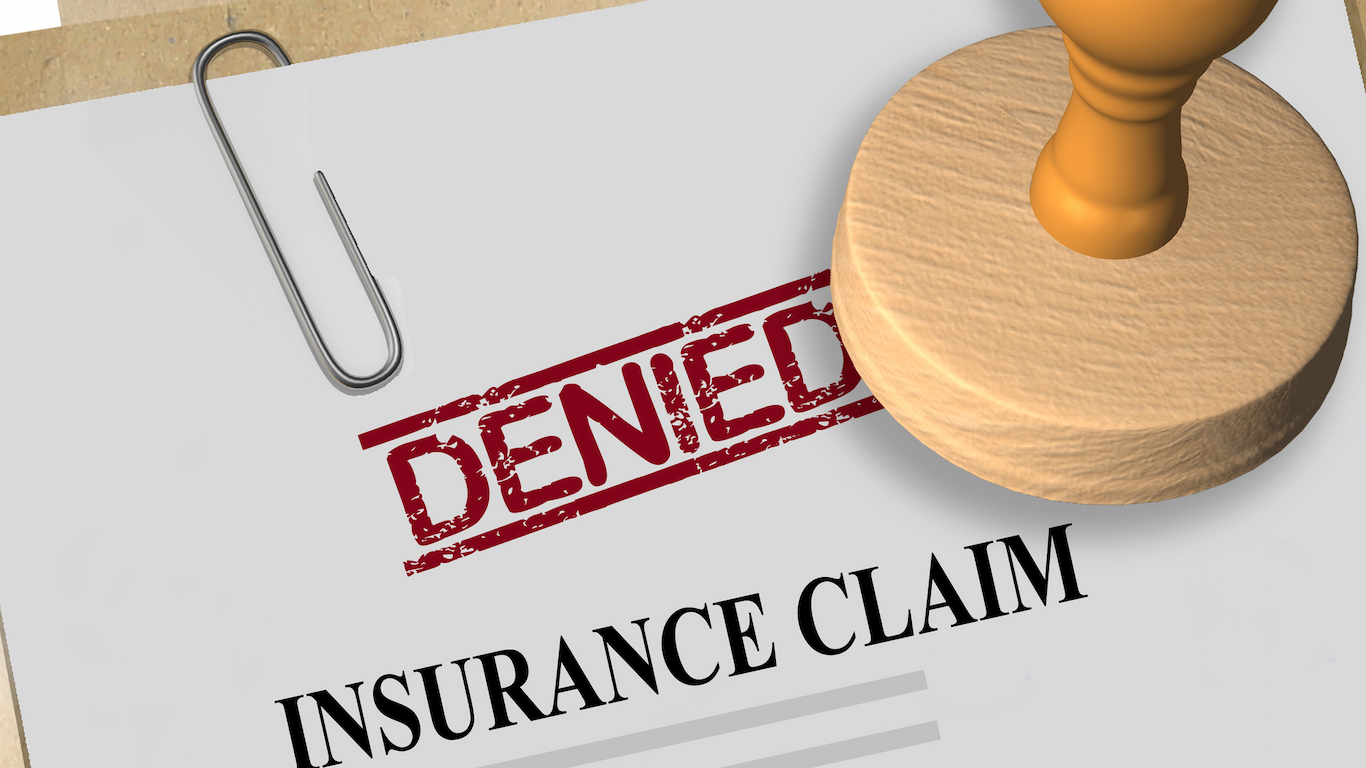5 reasons why life insurance claims get rejected and how to avoid them
Life insurance is one of those products that you buy, while simultaneously hoping to never use. If the worst were to happen, though, you would want that coverage to support your loved ones in your absence.
But what if your family’s life insurance claim was rejected in the end? What sort of financial impact would that have on their lives?
5 Reasons a Life Insurance Claim Could Get Denied
Here’s a look at some of the most common reasons that a claim for life insurance coverage could be denied, and how to avoid this ever happening to your own loved ones.
The Policy Lapsed
One of the easiest — but perhaps, most frustrating — reasons that a life insurance claim would be denied is that the policy simply lapsed and coverage is no longer valid. Without active coverage, life insurance carriers are unlikely to approve your loved ones’ claim, no matter how long you held the policy previously.
A policy typically lapses when premiums go unpaid. Many carriers offer a grace period (usually 30 to 60 days) if you are unable to pay premiums or simply forget. However, once that grace period ends, coverage will be cancelled if the payments are not brought up-to-date.
With some permanent life insurance, the carrier can pull from the policy’s cash value to cover premiums. Once those funds are exhausted, though, the policy will still lapse.
An easy way to avoid this? Set up auto-pay with your carrier or even pay your annual premium upfront, if you can.
Term Coverage Ended
When you buy term life insurance, you are purchasing coverage for a specific period of time (term). This can be anywhere from one to 40 years, depending on the policy and the carrier.
No matter when the term ends, though, the policy will either need to be renewed or a new policy purchased, or you’ll be left without valid coverage.
To avoid this, consider buying the longest term life policy that you think your loved ones will need. If your policy is set to expire soon, see what options you have to renew — or consider shopping around for new coverage on a platform like Fiona!
The Cause of Death Didn’t Qualify
Not all life insurance policies cover all causes of death. For instance, an accidental death policy won’t cover someone who passed away from natural causes or a disease like cancer.
Be sure to purchase a life insurance policy that protects your loved ones no matter how you could die. Typically, term and whole life policies will cover both natural and accidental deaths, but be sure to read your policy’s terms and conditions to learn more.
Death Occurred During the Contestability Period
Most life insurance policies come with a two-year contestability period. This means that for the first two years of your new policy, your carrier reserves the right to delay any claim payout if you were to pass away.
This gives them the opportunity to investigate not only the circumstances around your death, but also the information you offered when applying. Specific causes of death may even be excluded during the two-year contestability period: for instance, most policies will deny claims related to a death by suicide, if it occurs in the first 24 months that the policy is active.
Certain Information Wasn’t Disclosed
When applying for life insurance coverage, you’ll likely be asked many questions related to your
Occupation
Hobbies
Family medical history
Personal health history
Tobacco, alcohol, and drug use
It’s important to be upfront and honest with your answers to these questions.
Why? If you were to pass away — especially during the policy’s two-year contestability period — and your carrier learned that you weren’t entirely truthful, your loved ones’ claim could be denied.
For example, let’s say that you tell your carrier you have never been a smoker, in an effort to snag a lower premium. The truth is, though, that you actually smoke half-a-pack a day.
Six months after buying your policy, you get diagnosed with lung cancer; a year later, you pass away from related complications. Well, if your carrier decided to contest your family’s claim and then learned that you were dishonest on your application, they could deny all benefits to your loved ones altogether.
Buying Coverage That Fits Your Needs
Life insurance is an important product to have, especially if you want to financially provide for your loved ones in your absence. If you were to pass away, this coverage can be used by your beneficiaries to replace your income, pay off shared debt, provide for educational expenses, and so much more.
Just buying coverage isn’t enough, though… you also need to ensure that this coverage is valid and up-to-date at all times. The only thing worse than you passing away unexpectedly would be for your family’s life insurance claim to get rejected.
Not sure what sort of life insurance coverage you need, or where to get started on buying a policy? Fiona can help. Here you can get matched with personalized offers from A (or higher) rated carriers across the country, for up to $5 million in coverage.You might also be interested in
Disclaimer: The material provided on this site is not intended to provide legal, investment, or financial advice or to indicate the suitability of any Engine by MoneyLion product or service to your unique circumstances. For specific advice about your unique circumstances, you may wish to consult a qualified professional. Any information or statistical data sourced by Engine by MoneyLion through hyperlinks, from third-party websites, are provided for informational purposes only. While Engine by MoneyLion finds these sources to be accurate, it does not endorse or guarantee any third-party content.
